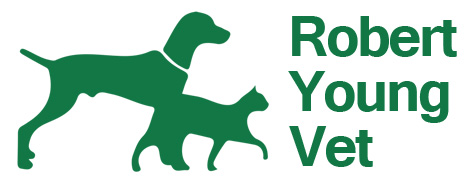Vaccinations
Vaccines For Dogs
There are 3 different vaccines that we use in dogs. The first vaccine we give is the routine vaccine against the major endemic diseases of distemper, hepatitis, parvovirus, leptospirosis and parainfluenza.
The first injection is given at 6 to 8 weeks – we advise that the puppy is in his/her new home for at least 5 days prior to the 1st vaccination. The 2nd vaccination must be given at least 3 and not more than 4 weeks after the 1st vaccination. Additionally the 2nd vaccination cannot be given before 9 weeks of age. Puppies will be immune from the 3 major diseases on the day of the 2nd vaccination and at that point can be taken out of his/her first walk on pavements and streets. Booster vaccination is required annually; the practice will send a reminder to advise you when booster vaccinations are due.
The specific kennel cough vaccine is an intranasal vaccine where a few drops of the vaccine are administered via the nostrils of the dog. We advise vaccination for all dogs with a respiratory or heart complaint. Additionally any dogs which are boarded several times per year should be vaccinated as they are more liable to transfer the infection into or out of the kennel. Finally we would advise the vaccine where the symptoms of a persistent cough would be troublesome for the dog or the owner, e.g. in a small house where the dog is left on his own for long periods. Annual boosters are recommended for dogs at risk or a single vaccination prior to entry to the kennels as appropriate.
Vaccines For Cats
Kittens require to be vaccinated at 9 weeks of age and again at 12 weeks of age. The minimum gap between injections is 3 weeks and the maximum is 4 weeks; it is important to consider this especially if holidays are imminent. The kitten is fully immune and able to go outside one week after the second vaccination. Annual boosters are required to ensure that your cat remains protected throughout its life; the practice will send you a reminder when it is time for your cat to receive the booster vaccination.
The practice currently offers 2 types of cat vaccine the first includes feline Panleukopenia and cat flu; the second includes these 2 diseases plus the feline leukaemia virus. We would always recommend the full vaccination in kittens and young cats; the restricted vaccine might be more appropriate in older cats. There is a considerable difference in the charge made for the two different vaccines.
Vaccines For Rabbits
There are two rabbit diseases against which we can offer protection by vaccination. The first disease is myxomatosis and it causes a slow lingering death with painful lesions around the mouth and other body openings. Myxomatosis is spread by fleas which transfer infection from infected to non-infected animals. We advise a vaccination for any young rabbits over 6 weeks of age followed by an annual booster.
The second disease is Haemorrhagic Viral Disease. The principal sign in this condition is sudden death. Therefore the true incidence of this condition in solitary pet animals or wild rabbits is difficult to establish. A combined vaccination will protect rabbits against both of these diseases.

